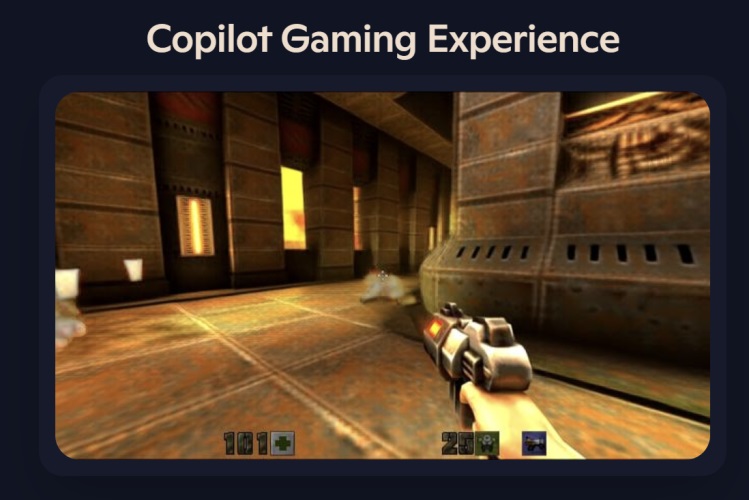Play Quake II generated by AI: Microsoft’s Copilot Gaming demo

Microsoft offers a playable, AI-generated tech demo of the classic game Quake II. This demonstration utilizes Microsoft’s new Muse AI model, initially unveiled as part of the company’s foray into the Xbox AI era earlier this year. While initially presented as a Microsoft Research project, the tech giant is now allowing users of its Copilot service to experience Muse firsthand through this unique gaming application.
This intriguing tech demo is a key component of Microsoft’s “Copilot for Gaming” initiative. It presents an AI-generated rendition of a Quake II level that is directly playable within a web browser. While the current iteration features a simplified environment with somewhat blurry visuals for enemies and interactions, and access is currently time-limited, it offers a fascinating glimpse into the potential of AI in game development and preservation.
The performance of this AI-generated Quake II demo represents a significant step forward for the Muse model. Initially showcased at a modest 10 frames per second and a 300 x 180 resolution, this latest demonstration achieves a playable frame rate at a slightly improved 640 x 360 resolution. Despite its current limitations, it provides a tangible preview of future possibilities within the gaming landscape.

Microsoft continues to position its Muse AI model as a valuable tool for game developers, particularly in the early stages of prototyping new games. During Muse’s initial announcement in February, Microsoft also highlighted its potential in revitalizing classic games like Quake II and making them accessible on modern hardware.
“You could imagine a world where from gameplay data and video that a model could learn old games and really make them portable to any platform where these models could run,” stated Microsoft Gaming CEO Phil Spencer in February, emphasizing the potential for game preservation. “We’ve talked about game preservation as an activity for us, and these models and their ability to learn completely how a game plays without the necessity of the original engine running on the original hardware opens up a ton of opportunity.”
This Quake II demo indicates that Microsoft is actively training the Muse AI on a broader range of games beyond its initial demonstrations with Bleeding Edge. It is anticipated that Microsoft will release more of these short, interactive AI-powered game experiences through Copilot Labs in the near future. Furthermore, Microsoft is actively developing Copilot into a comprehensive in-game assistant, capable of providing tips and guides based on real-time gameplay analysis through Copilot Vision, which will soon be available to Windows Insiders.
